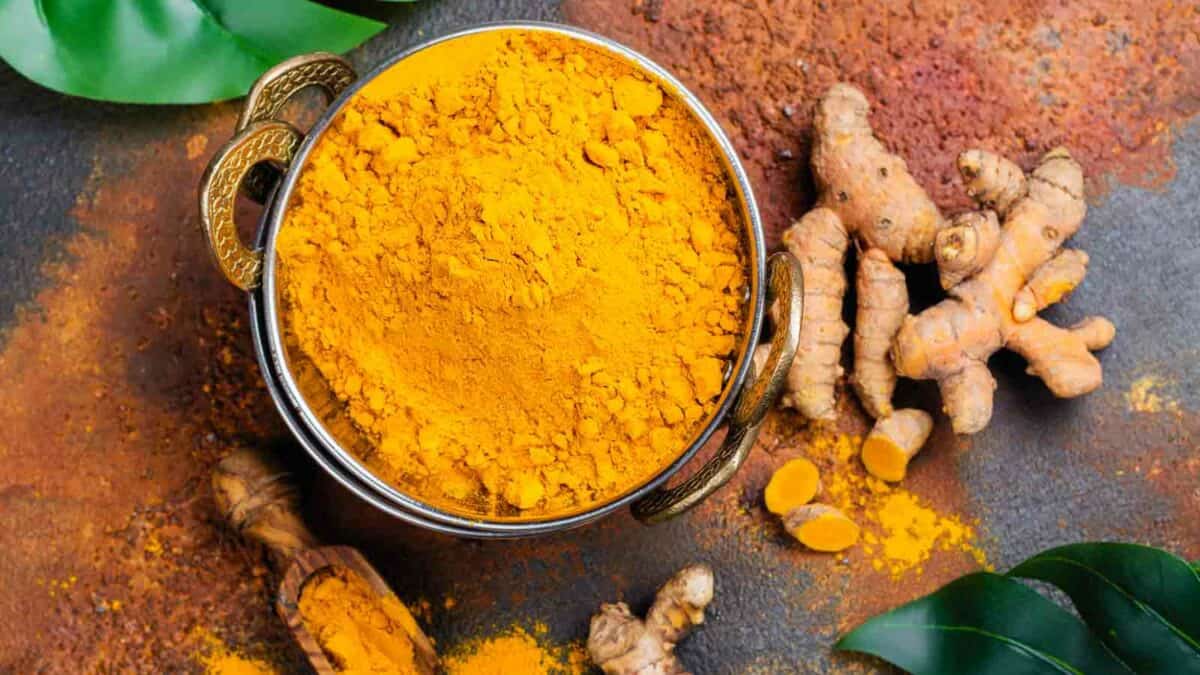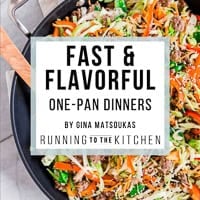Chronic inflammation can wear down your body in ways that are easy to ignore until they start to affect how you feel every day. While medication has its place, the food you eat can play a big role in managing inflammation too. Certain ingredients are known to help calm the body’s inflammatory response and support better long-term health. These aren’t hard-to-find superfoods or expensive supplements. They’re everyday foods that can make a real difference for your health when they show up regularly on your plate.
*The content of this article is not intended as medical advice.

Turmeric

Turmeric has earned its reputation for good reason. Its active compound, curcumin, has been studied for its ability to reduce inflammation at the cellular level. While the spice itself is easy to stir into meals, pairing it with black pepper improves how your body absorbs it. Whether you add it to curries, stir it into rice, or blend it into a drink, turmeric is one of the most effective anti-inflammatory ingredients you can keep in your kitchen.
Ginger

Ginger’s uses go beyond tea and baked goods. Its natural anti-inflammatory compounds, particularly gingerol, can help ease joint pain and reduce muscle soreness over time. It’s also known to support digestion and calm nausea, which makes it a smart ingredient to work into everyday meals. Use it fresh in stir-fries, grated into soups, or blended into smoothies for both flavor and real functional benefits.
Berries

Berries, especially blueberries, strawberries, and raspberries, are packed with antioxidants called anthocyanins, which are known to combat inflammation. These compounds help protect your cells from damage while also supporting heart and brain health. They’re easy to toss into breakfast, blend into smoothies, or eat on their own. Keeping berries in your diet is one of the simplest ways to regularly fight inflammation through food.
Leafy Greens

Leafy greens like spinach, kale, and Swiss chard deliver a solid mix of fiber, antioxidants, and anti-inflammatory nutrients like vitamins A, C, and K. These greens help protect against oxidative stress and promote better immune function. They also pair well with nearly everything. Use them raw in salads, sautéed as a side, or blended into soups and smoothies to get the most out of their nutritional benefits.
Fatty Fish

Salmon, sardines, and mackerel are some of the best sources of omega-3 fatty acids, which are well-known for their ability to reduce inflammation and support long-term heart health. Eating fatty fish a few times a week can lower levels of inflammatory markers in the body. If cooking fish isn’t your thing, high-quality fish oil supplements can be a practical backup to still get those anti-inflammatory benefits.
Olive Oil

Extra virgin olive oil contains oleocanthal, a compound that works in a similar way to anti-inflammatory medications, minus the side effects. Using it as your main cooking oil or as a finishing drizzle over meals can help lower inflammation and support heart health. It’s especially effective when used in place of more processed fats like vegetable or soybean oil.
Nuts

Almonds and walnuts are two of the most researched nuts when it comes to reducing inflammation. They’re full of healthy fats, plant-based protein, and micronutrients that help regulate immune responses and reduce oxidative stress. A small handful a day can be enough to see the benefits, whether you’re eating them as a snack, adding them to salads, or mixing them into oatmeal.
Green Tea

Green tea is one of the best-known beverages for fighting inflammation thanks to its high levels of epigallocatechin gallate (EGCG), a potent antioxidant. Regularly drinking green tea may help reduce inflammation in the digestive tract and lower the risk of chronic disease. It’s also a good option for replacing sugary drinks or extra cups of coffee while still giving you a caffeine boost.
Garlic

Garlic contains compounds like allicin and sulfur-based antioxidants that help lower inflammation and support immune health. It works well in both raw and cooked forms, making it one of the easiest ingredients to work into meals. Beyond the flavor it adds, consistent use of garlic has been linked to reduced risk of chronic conditions associated with inflammation.
Cherries

Tart cherries in particular are high in anthocyanins and other antioxidants that target inflammation. Studies show that they may help reduce joint pain, improve recovery after exercise, and even support better sleep. Fresh, frozen, or juiced, cherries are a practical and versatile way to add anti-inflammatory power to your daily routine.
Try these tart cherry gummies for a restful night’s sleep too.
Flax Seeds

Flax seeds contain plant-based omega-3s and lignans, both of which have been linked to lower inflammation. They’re also high in fiber, which supports gut health and helps regulate the immune system. To get the full benefit, use ground flax seeds rather than whole, and add them to smoothies, yogurt, or oatmeal as part of your regular rotation.
12 Foods Causing Your Inflammation

Inflammation can be a real pain, literally and figuratively. While it’s a natural part of the body’s defense system, chronic inflammation can lead to serious health problems. Surprisingly, some everyday foods might be causing your inflammation to spike. Here’s a list of some foods that could be contributing to your discomfort and why you might want to cut back on them.
Read it Here: 12 Foods Causing Your Inflammation
Forget Melatonin — These 11 Foods Can Help You Sleep Naturally

Most people reach for melatonin when sleep doesn’t come easy, but food might be doing more than you think behind the scenes. What you eat in the evening can either push you closer to rest or keep your brain wired long past bedtime. Some ingredients help your body produce the right signals to relax, shut down, and stay asleep.
Read it Here: Forget Melatonin — These 11 Foods Can Help You Sleep Naturally
*Select images provided by Depositphotos.
Gina Matsoukas is an AP syndicated writer. She is the founder, photographer and recipe developer of Running to the Kitchen — a food website focused on providing healthy, wholesome recipes using fresh and seasonal ingredients. Her work has been featured in numerous media outlets both digital and print, including MSN, Huffington post, Buzzfeed, Women’s Health and Food Network.








